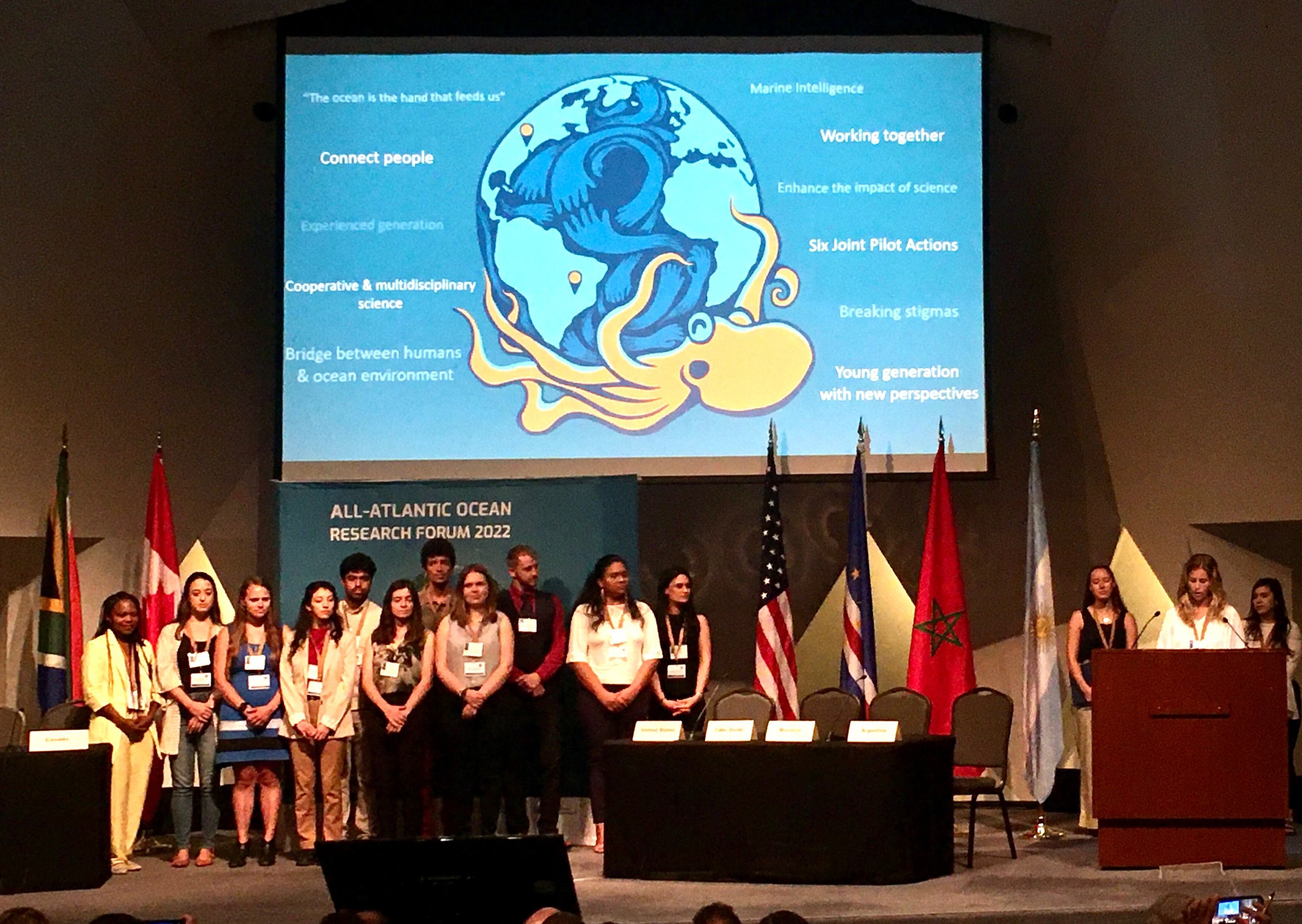“The mission of our generation is to make peace with nature” – the words of John Bell, ‘Healthy Planet’ Director in DG Research and Innovation of the European Commission, one of the speakers at the All-Atlantic Ocean Research Alliance 2022 Forum 12-14 July in Washington DC, USA.
For three very intense days, we had the extraordinary opportunity to meet with ministers, researchers, and stakeholders of all countries from both sides of the Atlantic Ocean, which were reunited at the National Academy of Sciences for the signing of the All-Atlantic Ocean Research & Innovation Alliance Declaration.
The Declaration underlines a vision of the Atlantic as an invaluable resource shared by all Atlantic nations and beyond, for which effective cooperation in marine research and innovation is required to best unravel all that is still unknown about it, while also managing human activities that depend on it in a sustainable way. The idea is to officialize an Atlantic Ocean Community from the Artic to Antarctica working together to ensure the Atlantic remains healthy, resilient, clean, safe, productive, understood, and treasured by present and future generations.
The “Portuguese delegation” included José Xavier, researcher at MARE-Coimbra and Head of Delegation of Portugal at the Antarctic Treaty Consultative Meetings; Teresa Cabrita, researcher at IGOT, Executive Director of PROPOLAR, and member of POLAR2E (College on Polar and Extreme Environments, University of Lisbon); and Catarina V. Guerreiro, researcher at MARE-Lisboa & IDL, member of POLAR2E, and PI of project CHASE. Below, Teresa Cabrita and José Xavier at the All-Atlantic Side Event on “Research Cooperation from Pole to Pole”, hosted by the Portuguese Embassy in Washington DC, aimed at informing about the research priorities for the Southern Ocean and Antarctica and discuss how to cooperate better in the future.
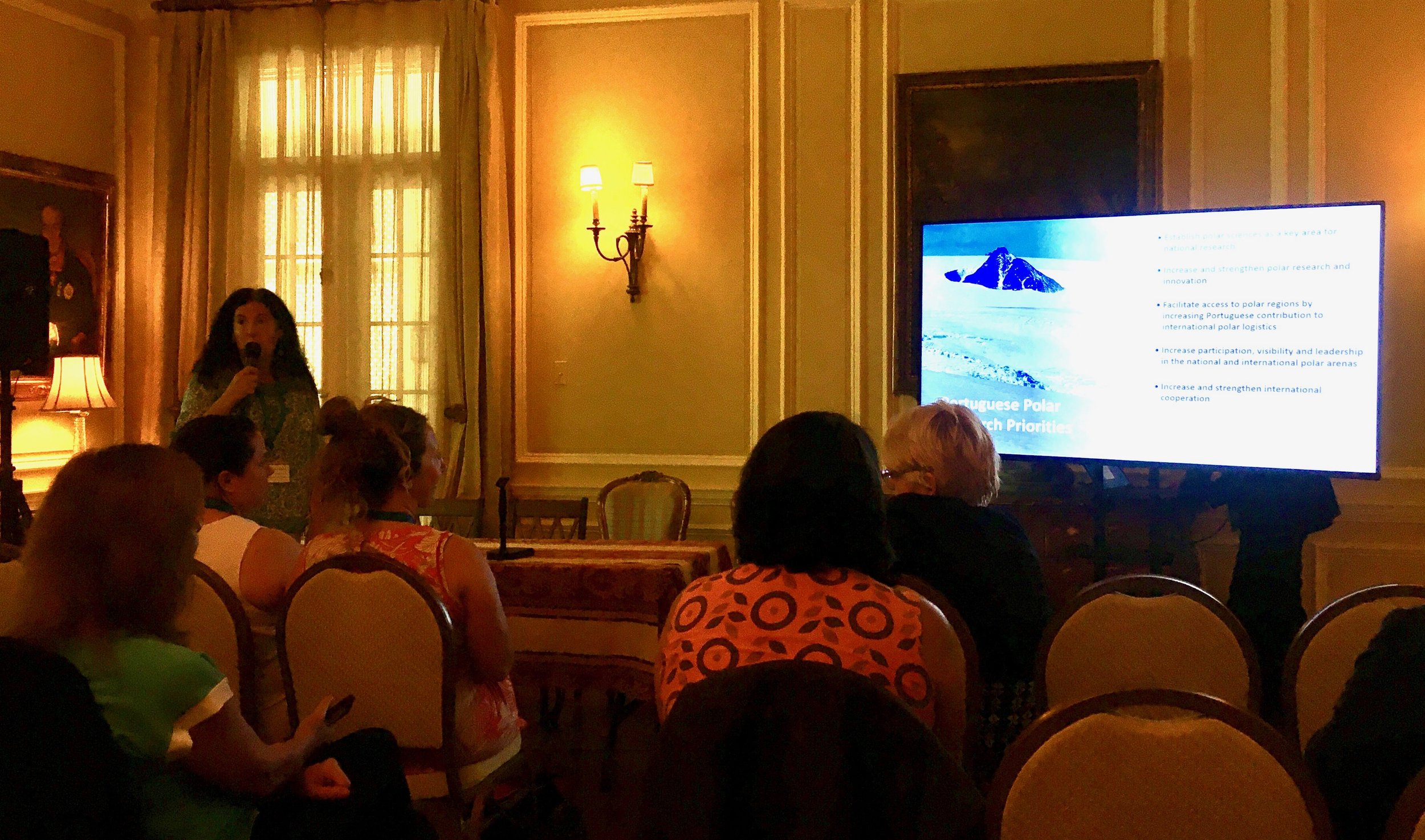
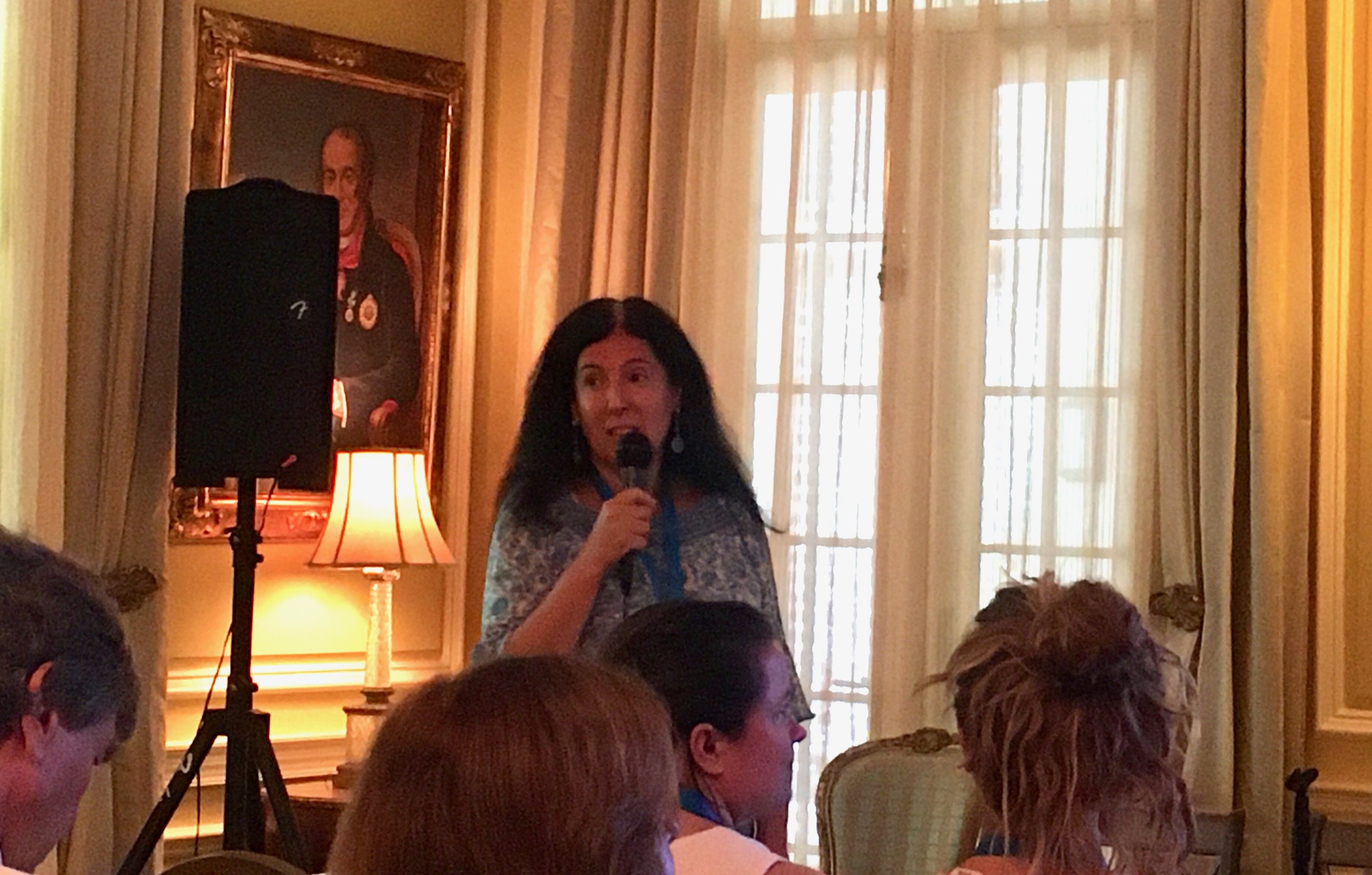
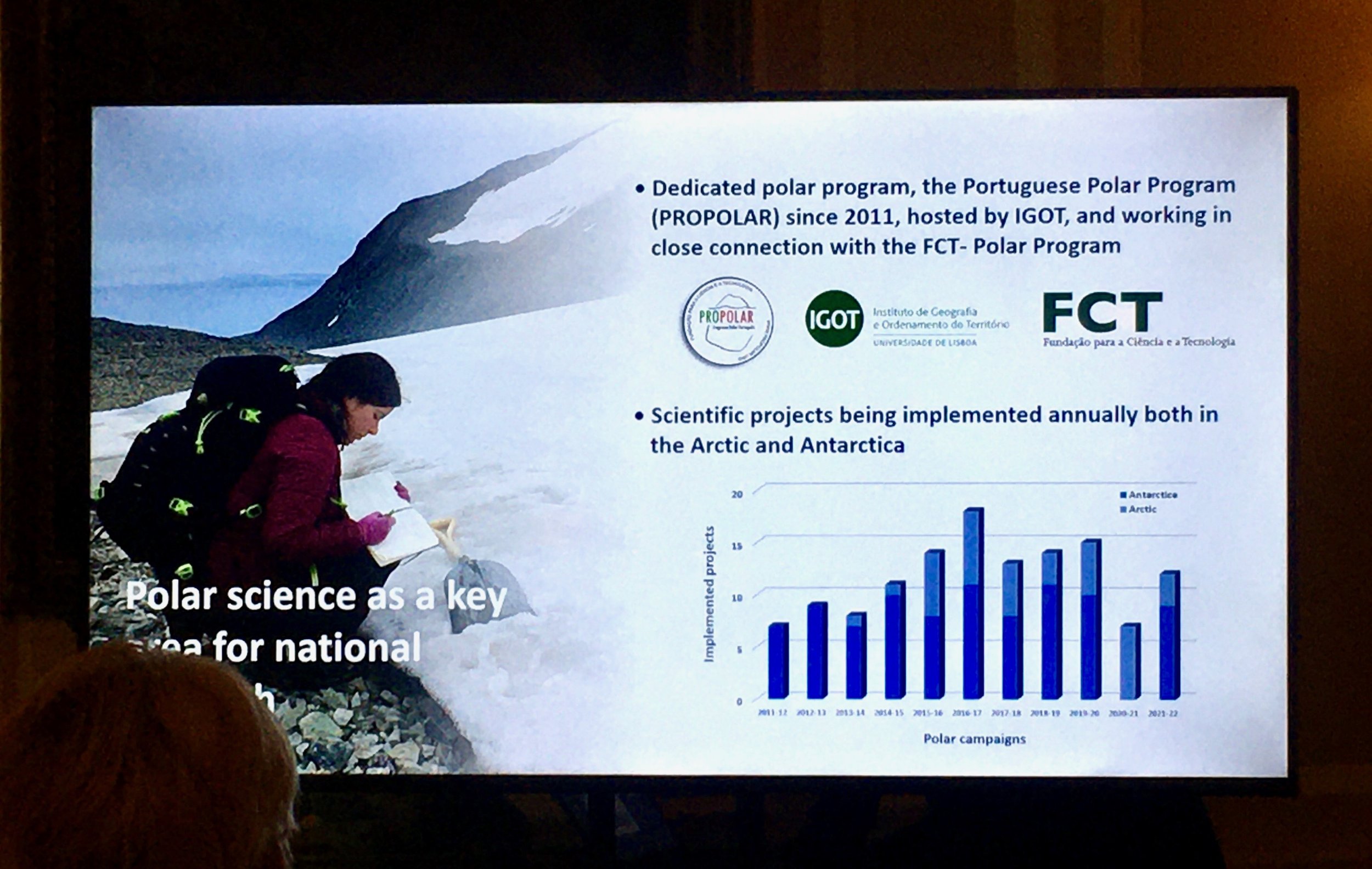
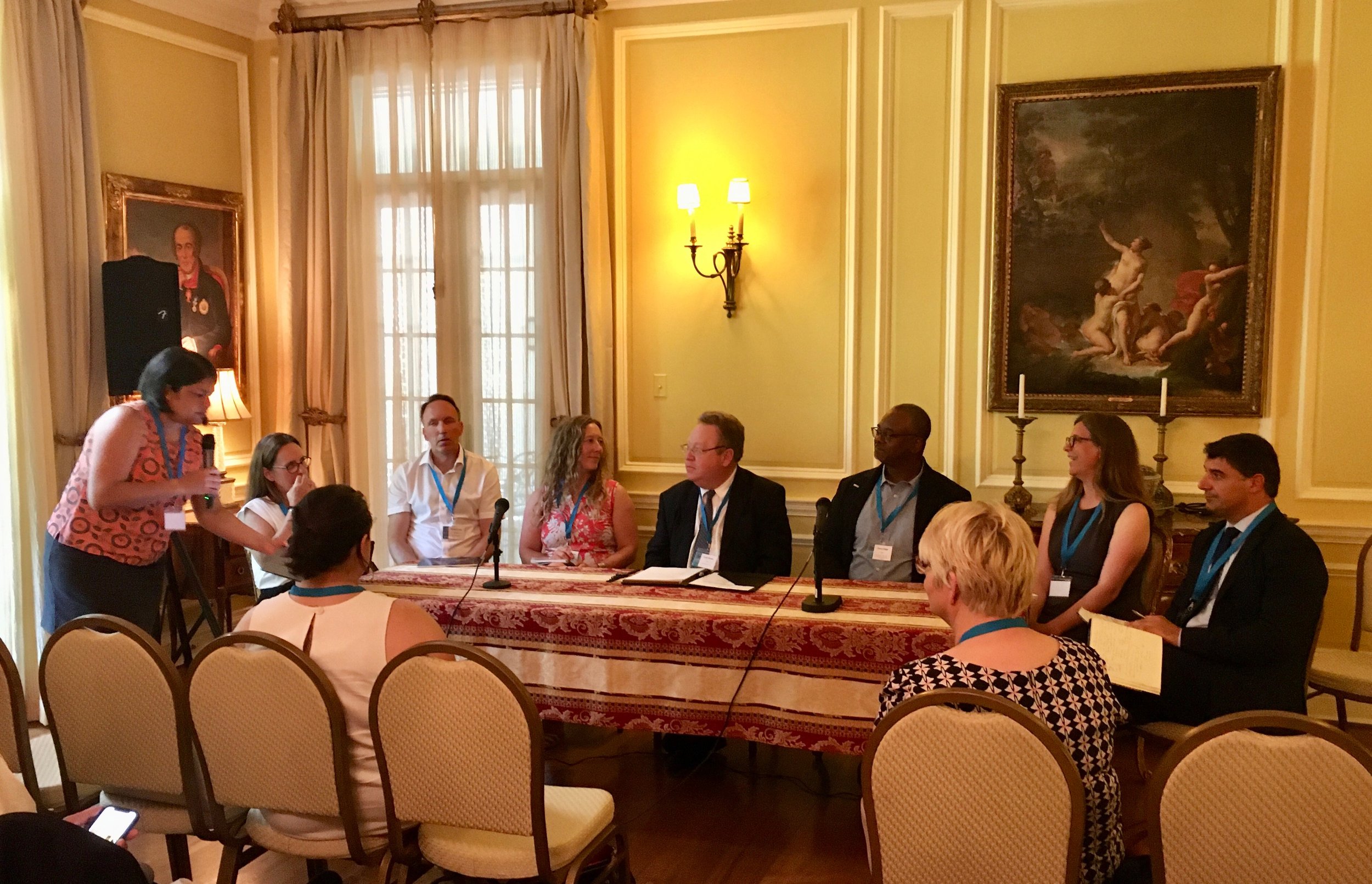
The speech by Mariya Gabriel, European Commissioner for Innovation, Research, Culture, Education and Youth, European Commission (video message).
“You only take care of what you love. But you can only love what you know”, the wise words of Prof. Dr. Martin Visbeck from the GEOMAR Helmholtz-Centre for Ocean Research Kiel, stressing the importance of continuously observing and monitoring the Atlantic towards its sustainable management and understanding its response to climate change. He was among the numerous researchers and institutional representatives (including NOAA, ESA, NASA, and the European Polar Board) which attended the Forum to share their knowledge and urgent recommendations towards protecting the ocean as our common good. The most persistently highlighted included:
1. International cooperation must be interdisciplinary and based on principles of inclusion, gender equality and diversity.
2. The need to change (our) behaviour. Ocean literacy and outreach activities are crucial to foster the dialogue between scientists, policymakers, industry, and public. Communication must be tailored to the audience (“Turn your idea into a feeling” - Bono, U2).
3. Of all people, we must engage the younger generations, as they are the future protectors of the ocean. The role of the university is key to form students to becoming better mediators between science knowledge, policy making and the community.
4. Switch from a Nature-paper-motivated funding system towards a sustainable-policy-making-motivated one.
5. Fostering of startups with an open mind towards a sustainable and yet profitable use of ocean resources.
6. Access to existing ocean data and infrastructure must be liberalized to overcome transnational asymmetries (socio-economic, hence scientific) and maximize its use towards advancing our knowledge on the ocean in the framework of a truly transnational Atlantic project.
The All-Atlantic Ocean Youth Ambassadors discussing their achievements and the significance of youth involvement in Atlantic cooperation and research.
One of the most inspiring moments was the appearance of the the All-Atlantic Ocean Youth Ambassadors, a group of young individuals from all walks of life, backgrounds, and nationalities, who are actively developing skills to become agents of change in their communities and beyond, through training and educational programmes, communication, and advocacy activities. Check more about their work here.


